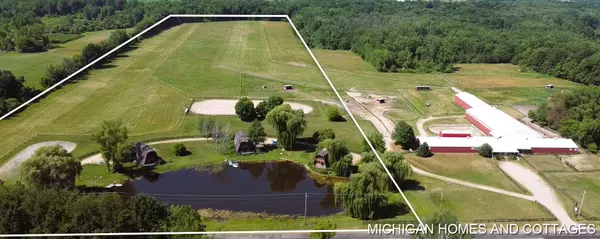Setting Up in a New State: What You Need to Know Before You Go

Image via Pexels
Setting Up in a New State: What You Need to Know Before You Go
Moving to a new state is a major decision that demands thoughtful planning. Key considerations include financial factors like taxes and access to essential services, along with finding a neighborhood that suits your lifestyle. Adequate preparation can ensure a smooth transition and successful start in your new location. In this article, you'll find guidance to help you navigate the relocation process and make informed decisions, courtesy of Michigan Homes & Cottages.
Assessing Tax Implications
When planning your move to another state, understanding the local tax landscape is crucial. Each state has its own set of rules regarding income taxes. Some states, like Florida and Texas, do not impose a state income tax, which can significantly affect your net income. On the other hand, states like California and New York require a higher percentage from your earnings. Additionally, property taxes vary widely by location and can impact your housing budget. Familiarizing yourself with these taxes will help you manage your finances more effectively.
Healthcare and Insurance Networks
Before you move, research the healthcare services available in your new state. This includes identifying major hospitals, general practitioners, and specialists. Check whether your current health insurance provides coverage in your new location or if you need to switch to a new provider. This is vital for ensuring that you and your family have uninterrupted access to medical care without unexpected costs.
Opportunities for Professional Growth
Using your move as an opportunity to advance your career through further education can be incredibly beneficial. As a teacher, pursuing an EdD degree can empower you to shape curriculum development and policy, enhancing how instructional and assessment methods impact student learning. Moreover, many institutions now offer online EdD programs, providing the flexibility to continue working while you study. This approach allows you to apply new knowledge and skills in real-time, enriching both your professional growth and your contribution to education.
Commuting and Transportation
Understanding the public transportation options available in your new state is another important step. If you rely on public transport, check the availability and efficiency of local services. Consider the proximity of bus routes, subways, or train stations to your new home and workplace. Assessing your daily commute will help you save time and plan your day more efficiently.
Exploring Local Amenities
Investigate the recreational and social opportunities that your new area has to offer. Proximity to parks, gyms, theaters, restaurants, and shopping centers can greatly enhance your quality of life. These amenities provide a way to relax, enjoy your hobbies, and meet new people. Ensuring your new neighborhood aligns with your lifestyle needs will lead to a more fulfilling living experience.
Safety and Community Living
Checking the crime rates and community safety initiatives should be a priority. A safe environment contributes to a better quality of life and helps you feel more secure in your new home. Websites like CrimeReports or NeighborhoodScout can provide insights into the safety levels of different areas. Additionally, understanding local neighborhood watch programs or community safety measures can offer extra peace of mind.
Planning Your Moving Budget
Moving to a new state involves various expenses. Budget for the costs of hiring movers, renting trucks, or any temporary accommodations you might need during the transition. Planning these expenses in advance will help you manage your finances better and avoid last-minute financial stress.
Engaging with Your New Community
Finally, once you settle in, explore local clubs, volunteer organizations, and community groups. Joining these can help you integrate into the community, make new friends, and feel connected. Whether it's a sports club, a local theater group, or a volunteer organization, being active in your community can make your transition smoother and more enjoyable.
As you prepare to move to a new state, focus on key aspects like financial planning, healthcare access, local amenities, and community engagement. Thorough research and preparation will help ease the transition and build confidence. Exploring these elements can greatly impact how smoothly you settle in. By addressing these factors, you'll be better equipped to adapt to your new surroundings.
If you’re ready to start living the good life, call Michigan Homes & Cottages
Categories
Recent Posts











